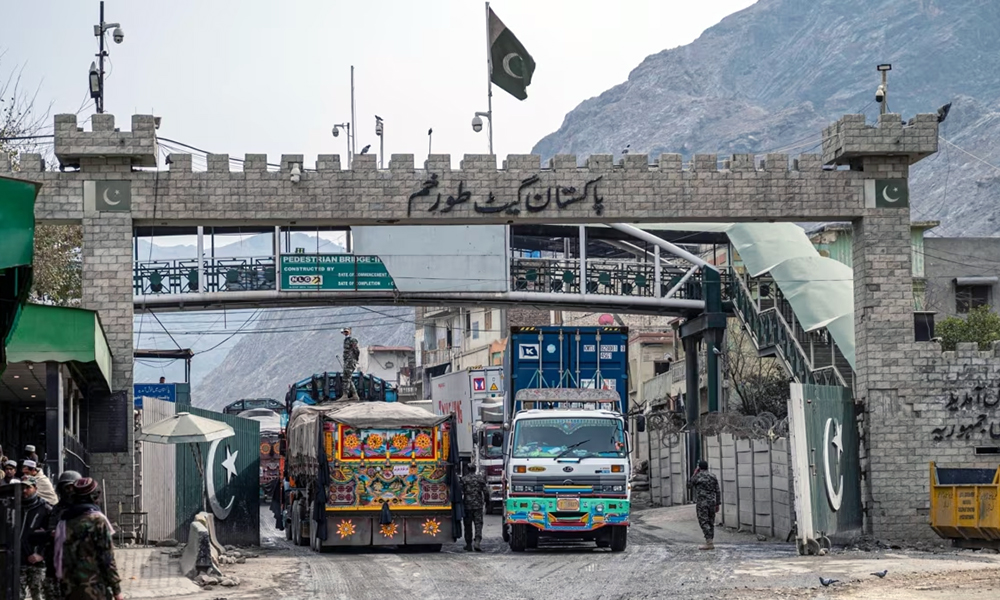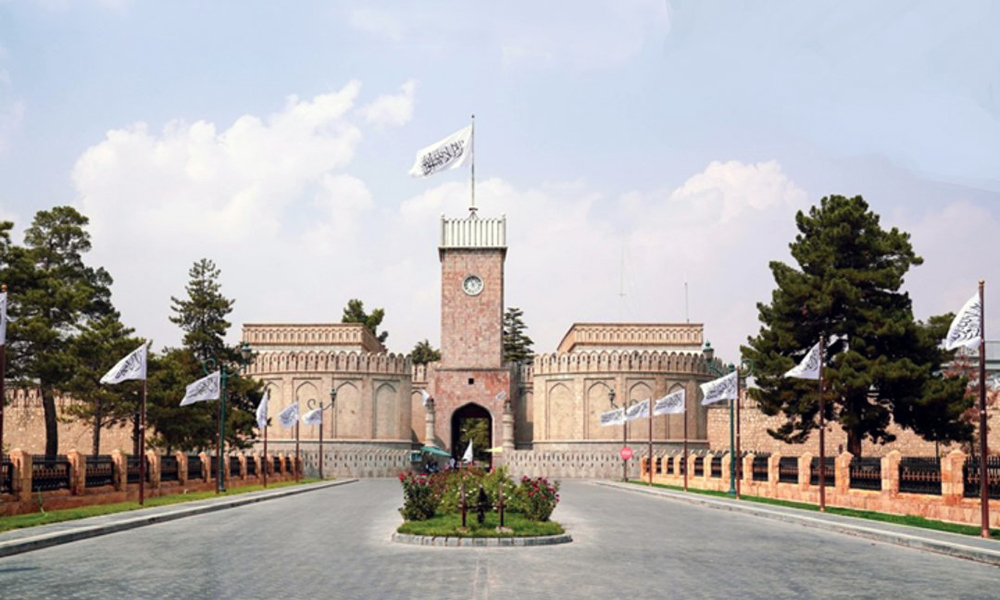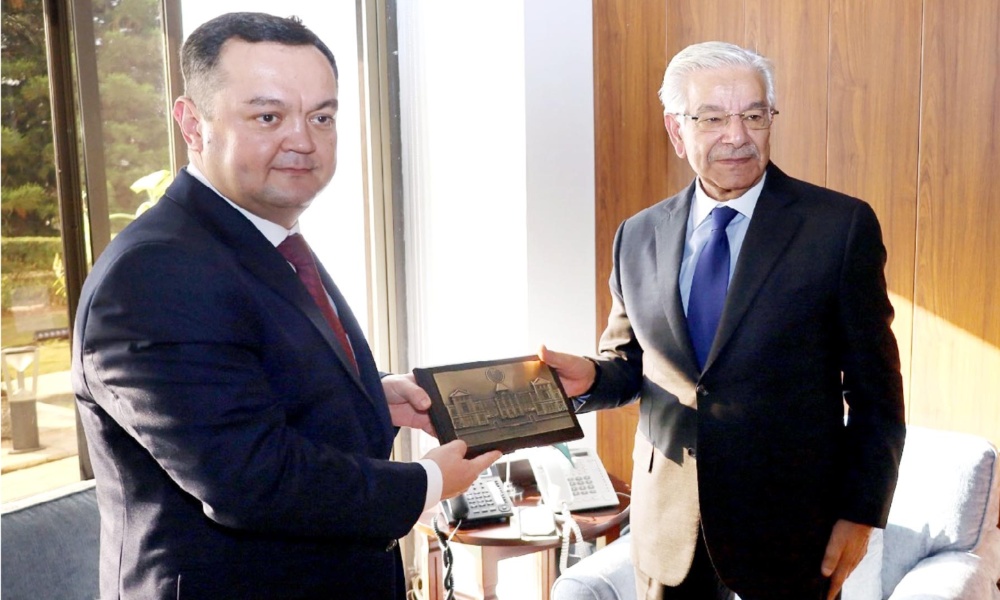Business
World Bank survey finds Afghan firms still face ‘daunting challenges’

The World Bank said Monday many businesses in Afghanistan are adjusting to the new business environment but most still face daunting challenges.
The World Bank’s second private sector survey, published Monday, was conducted in May and June 2022.
The Private Sector Rapid Survey (PSRS) Round 2 assessed the status, constraints, and investment outlook of businesses, and the impacts of the ongoing economic challenges faced by private sector firms in Afghanistan.
“Afghanistan continues to face enormous social and economic challenges that are impacting heavily on the welfare of its people, especially women, girls, and minorities.
“The new survey confirms the resilience of Afghanistan’s private sector, which can play a key role in the economic recovery of the country and improving the lives of all Afghans,” said Melinda Good, World Bank Country Director for Afghanistan.
“It also shows that firms continue to suffer from impacts of political uncertainty and policy fragmentation, Afghanistan’s isolation from the international financial sector, and reductions in international assistance,” she said.
More than three-fourths of firms surveyed in Round 2 are operational, compared to two-thirds in Round 1, conducted in October and November last year.
However, most are operating significantly below their full capacity and are only considered partially open, the World Bank stated. Consumer demand appears to have slightly improved in past months but remains considerably lower than before August 2021.
Employment remained around 50 percent lower, on average, than before August 2021, compared to 61 percent lower in Round 1 of the survey.
Women-owned businesses are most affected by restrictions on women’s mobility, resulting in disproportionate revenue and job losses, World Bank stated.
Female employment remains 62 percent lower than before August 2021, while it was 75 percent lower in November 2021.
In addition to this, the World Bank found that businesses continue to be negatively impacted by the loss of international banking relationships, which has disrupted international payments and limited access to bank accounts and formal banking.
“Firms are resorting to the use of informal money transfer systems for domestic payments,” the bank stated.
Despite some businesses hiring employees, the majority of respondents have coped with these challenges by laying off employees, shifting to cash and informal payment channels, shrinking investments, and lowering staff salaries, World Bank reported.
“Action is required by the authorities to unlock possibilities for much-needed international economic integration and domestic opportunities for Afghanistan’s private sector,” said Good.
“This includes increased transparency in public finances and reestablishing central bank independence. With measures like these and continued resilience of businesses, a sustainable private sector-led recovery is possible.”
Business
Daily truck clearances at Torkham drop from 400-500 to 5-10

Pakistan’s Sarhad Chamber of Commerce and Industry (SCCI) has said that daily truck clearances at Torkham crossing have declined from 400-500 to 5-10.
SCCI President Fazal Muqeem Khan said this at the signing ceremony of a memorandum of understanding (MoU) with the Pakistan-Afghanistan Joint Chamber of Commerce and Industry to promote bilateral trade and cooperation.
He said the volume of trade between Pakistan and Afghanistan had fallen from $3 billion to $1 billion annually.
Fazal Muqeem also highlighted the adverse impact of the 2% Infrastructure Development Cess (IDC) imposed by the Khyber-Pakhtunkhwa government on trade and transit.
Business
Turkish scholars, charity officials assess investment prospects in Afghanistan
Officials pledged to encourage Turkish investors to explore and capitalize on investment opportunities in Afghanistan

Afghanistan’s Acting Minister of Energy and Water, Mullah Abdul Latif Mansoor, met with a delegation of Turkish scholars and officials from the Adif Charity Foundation on Tuesday to discuss various political, religious, and social issues.
According to the Ministry of Energy and Water, Mullah Mansoor praised Adif’s humanitarian efforts in Afghanistan and highlighted the country’s ample resources for energy production.
He emphasized that Afghanistan currently offers a favorable environment for investment in all sectors, assuring the Turkish delegation of the Islamic Emirate’s commitment to ensuring the safety and security of investors and their assets.
In response, Adif officials pledged to encourage Turkish investors to explore and capitalize on investment opportunities in Afghanistan, signaling a potential boost in economic and developmental cooperation between the two nations.
Business
Uzbek envoy to Pakistan discusses Trans-Afghan Railway project with Pakistani minister
The Trans-Afghan Railway project is expected to serve as a powerful stimulus for trade and economic integration among numerous countries in the region

Regional connectivity projects including the Termez-Kabul railway line, the Trans-Afghan Railway, and the multimodal Belarus-Russia-Kazakhstan-Uzbekistan-Afghanistan-Pakistan transport corridor, are key to the region’s success, the Ambassador of Uzbekistan to Pakistan Alisher Tukhtayev said during a meeting with Pakistan’s Defense Minister Khawaja Asif on Friday.
The two officials discussed a range of issues as well as coordinating efforts to ensure stability and deepen economic integration in the region.
Asif however pointed out that Tashkent has become an important hub for regional cooperation, Pakistani media reported Monday.
Special focus was given to the implementation of the Trans-Afghan Railway project, which is expected to serve as a powerful stimulus for trade-economic integration to numerous countries.
The ambassador said the governments of Uzbekistan, Pakistan, and Afghanistan are actively cooperating in the implementation of joint economic and infrastructure projects and one of them is the construction of the Trans-Afghan Railway.
He said the “Termez-Kabul-Peshawar” railway project plays an important role in restoring ties of regional connectivity between Central and South Asia.
He added that once the project is launched, the volume of trade will increase significantly and shipping costs will decrease.
Tukhtayev said the railway connectivity will contribute hugely to regional stability and overall prosperity by aiding Afghanistan’s economic recovery.
He also said the project will facilitate the delivery of Uzbek goods to world markets through Pakistani ports and will open up a new route for Pakistan to export its products to Central Asian, and European markets.
According to him, the Trans-Afghan railway will be able to carry up to 20 million tons of cargo per year, and transportation costs will decrease by 30-35% and timing of deliveries will be cut from two weeks to three to four days.
He also stated that the international cooperation project on the development of the multimodal transport corridor Belarus-Russia-Kazakhstan-Uzbekistan-Afghanistan–Pakistan is being actively promoted.
[embed]https://youtu.be/2Osh4f_dA5Y[/embed]
-

 Sport5 days ago
Sport5 days agoLanka T10: All three matches abandoned due to rain
-

 Latest News5 days ago
Latest News5 days agoIndia hoping to import coal and marble from Afghanistan
-

 Sport4 days ago
Sport4 days agoZimbabwe’s opening ODI against Afghanistan abandoned
-

 Latest News5 days ago
Latest News5 days agoJapan announces $27.5 million aid package to Afghanistan
-

 Latest News3 days ago
Latest News3 days agoTwo horror accidents on Kabul-Kandahar highway leave 52 dead
-

 Latest News1 day ago
Latest News1 day agoAfghan men must stand with women to support viable future of country: US envoy
-

 World3 days ago
World3 days agoNorth Korean troops suffer 100 deaths, struggling in drone warfare, South Korea says
-

 International Sports4 days ago
International Sports4 days agoLanka T10: Kandy Bolts in at 4th spot in playoffs after thrilling day

























